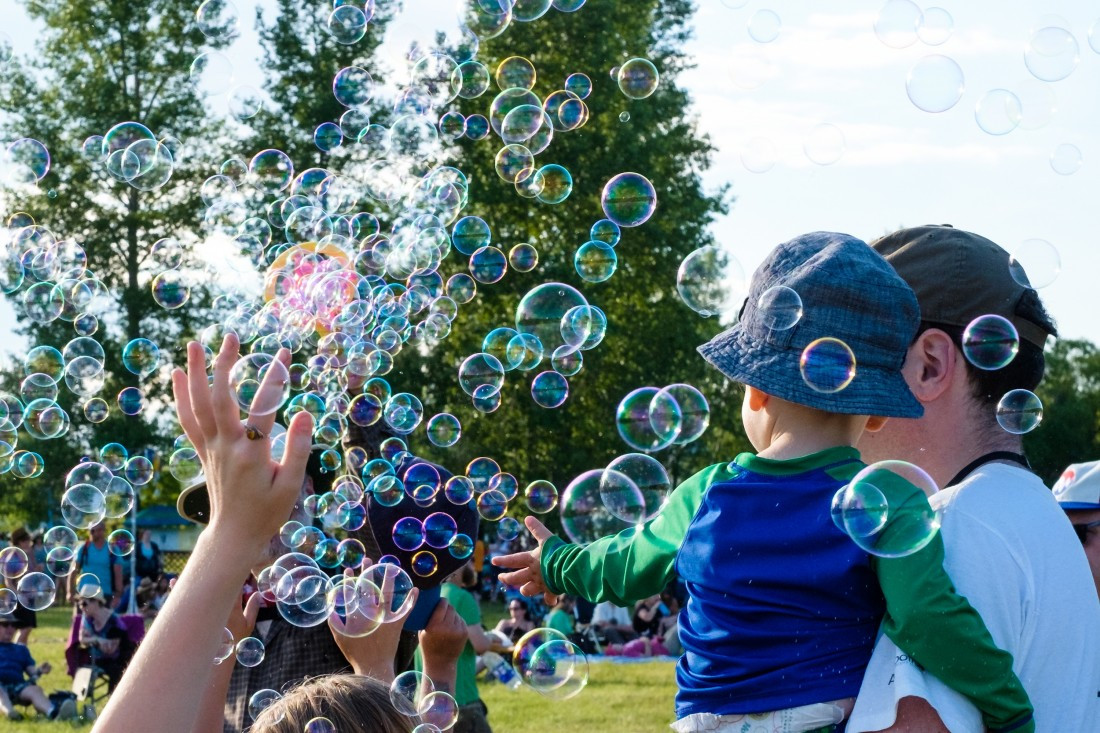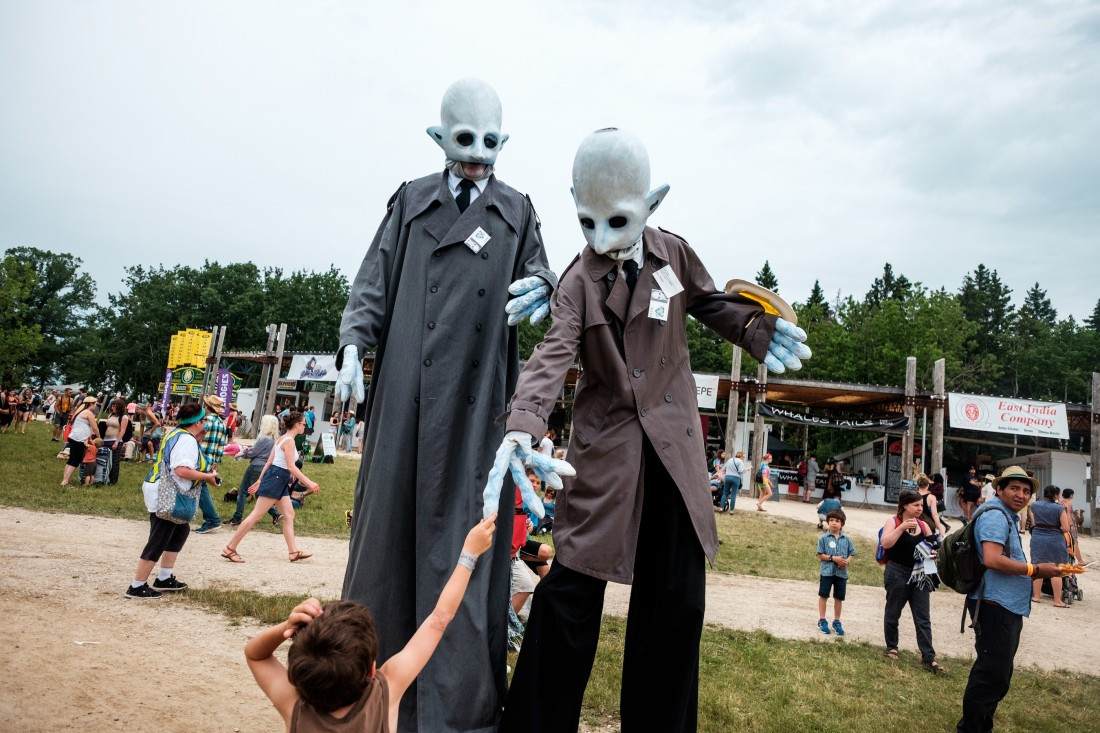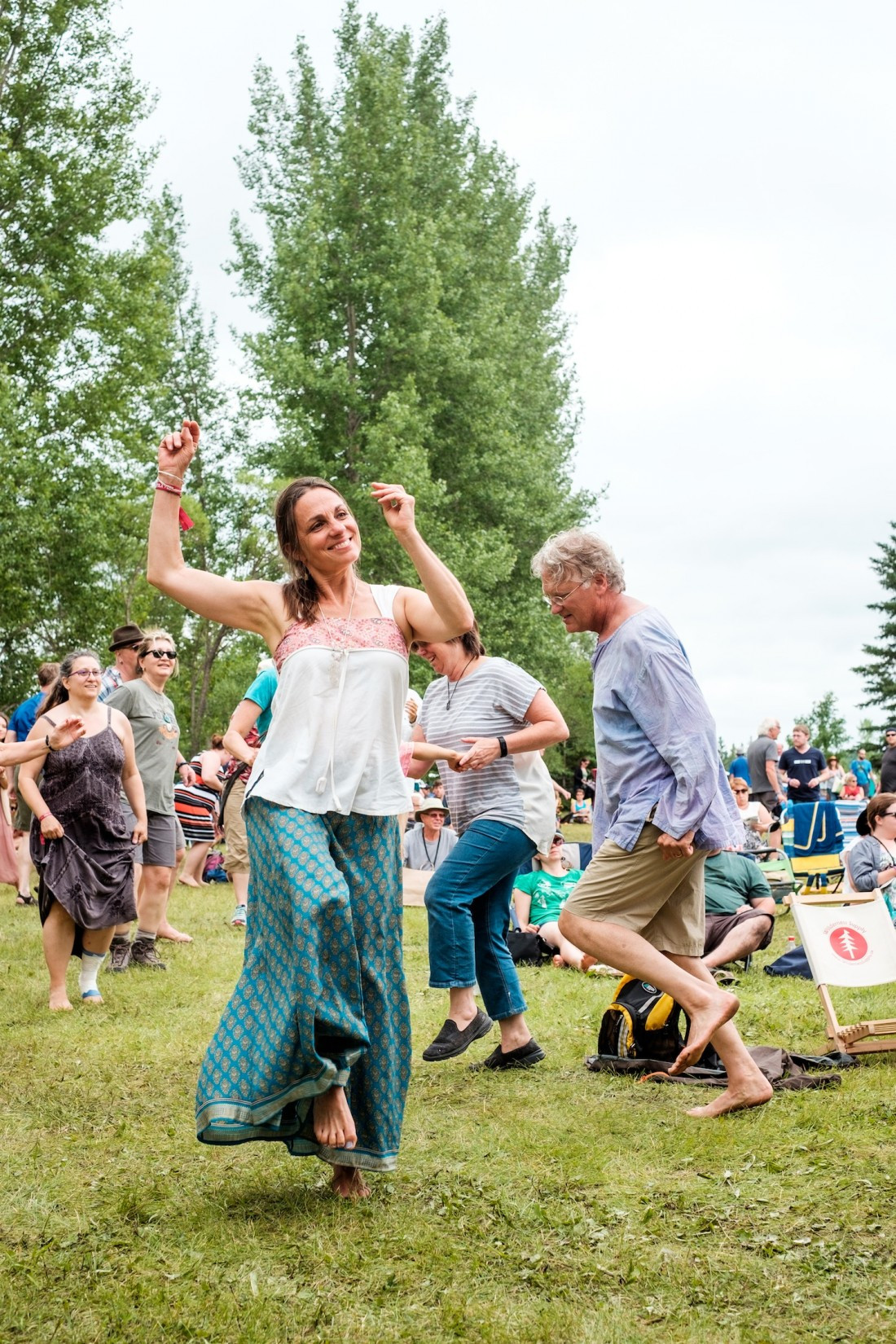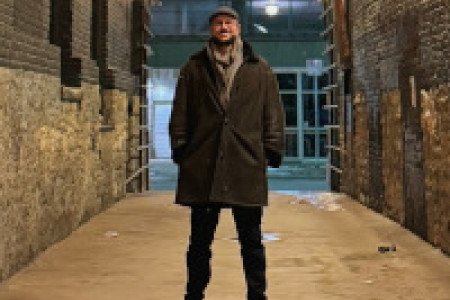Is Folk Fest “Manitoba’s Mecca”?
How the annual pilgrimage is filling a spiritual gap
Western world millennials are decidedly one of the least religious groups to exist in the history of the world. This segment of the population has seen both the devastating consequences of religious extremism as well as the benefits of a lifestyle that does not adhere to a strict dogma.
Many find that without religion, they might have the freedom to eat what and when they want, marry or not marry whomever they like, engage in hobbies with fervour and cast aside the 9 to 5 workday. Who needs religion when they’re young and free?
Nowhere is that so emphatically celebrated as the Winnipeg Folk Festival. There, the usual notions of schedules and daily life are entirely cast off to make room for what is important – music, connecting with others, nature and maybe most importantly, yourself. Folk Fest is about colouring outside the lines, or wherever you’d like to colour.
However, Folk Fest is also giving attendees and campers something they can’t find anywhere else and it’s not just four days of good music. It might just be the same thing that religion offered to people for thousands of years before many decided that they didn’t need it anymore.
Matthew Keating comes from Thunder Bay for Folk Fest every year, and he says the whole thing has a small town feel to it.
“I think it’s sort of the Winnipeg mentality,” he says. “Thunder Bay is sort of a similar small town environment. Say you only grow one crop and someone else grows another crop – you’d often just share with neighbours to sort of create this environment. It’s all about small town living, keeping everybody happy.”
Wandering minstrels contribute to the community feel at the Winnipeg Folk Fest. (Photo by Daniel Crump)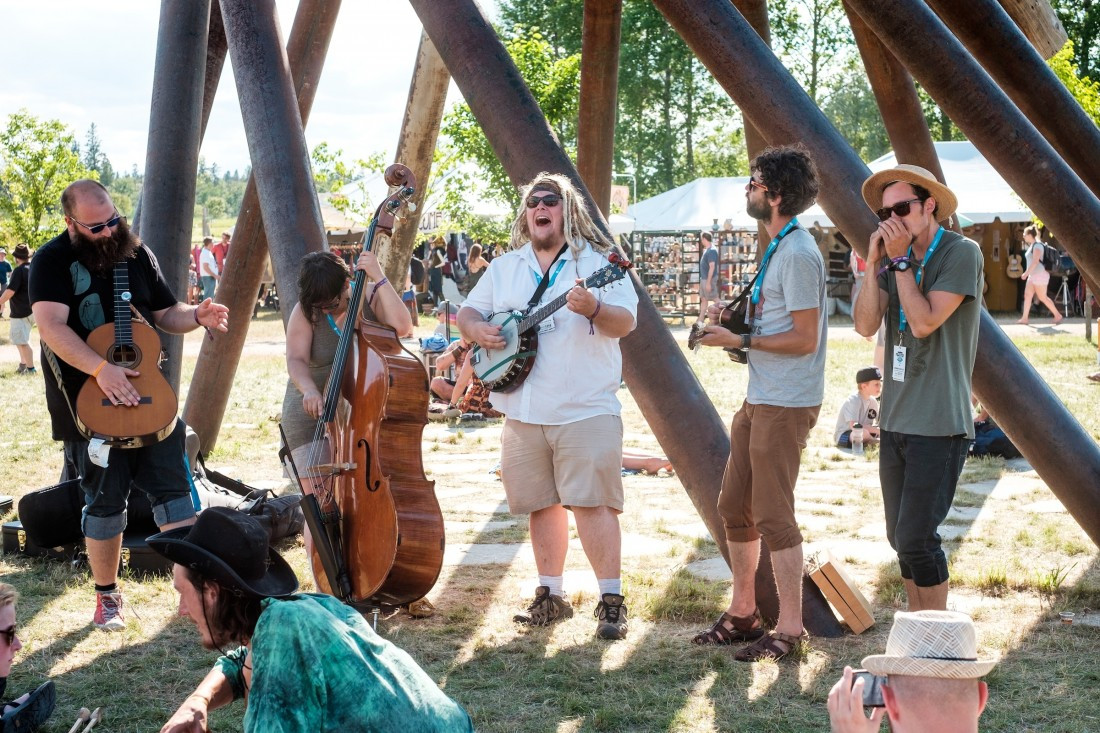
A big draw for most Folkers is community and not surprisingly, that has been and is one of the biggest elements of religion.
Savannah Shore considers herself a former Christian and for her the parallel is straightforward.
“I actually have a bible verse tattooed on my back but it’s not something I practice frequently now,” Shore says. “But I definitely consider myself someone with spirituality, someone who does believe in the main idea or teaching in the bible which is just to love one another, and I think that’s what Folk Fest is all about.”
“I feel spirituality here,” Keating says, although he’s never practised a religion before. “There’s this energy.”
He’s not the only one. Folkers describe the feeling as profound and transcendental, absorbing that energy as fully as they do delicious food and the sun. One attendee recounted her trek through the forest to the festival site and how every year, she can’t help but cry.
As professor Ernest Janzen (who teaches in the Department of Religion and Culture at the University of Winnipeg) says, there is also dogma – rules, both written and unwritten – at the Folk Fest. Some are as simple as no littering, but the overarching rule is one you’ve heard in every religious text: treat others as you would like to be treated.
Unlike its northern neighbour Country Fest, Folk Fest is not an environment for brawls and confrontations. Any violence or lack of compassion isn’t just “not cool, man,” people who attend generally understand how to maintain a safe environment.
Music brings many festival-goers together on their tarps to wrap up the day. (Photo by Daniel Crump)
“Don’t usurp on someone’s tarp that they put down,” Pam Jenkins says, when asked about Folk Fest rules. “People do respect that.”
“And it feels clean, and like people respect the plate rules. It feels safe,” Pam’s daughter Jennifer adds.
The two have been coming to the festival for years, Pam for the last 20. Now, it’s hard to make it to the stage to hear their shows because of all of the people they have to stop and say hi to.
Folk Fest’s intergenerational scene strikes resemblance to religious gatherings. Like church, temple or mosque, you’re never too young or too old to attend. Folk Fest seems to be one of the last places that harkens back to a time when walking around with your baby strapped to your chest is not just OK, but encouraged. Kids camp with their families in both quiet and loud camp sites, grow up to attend the festival with friends and then bring their own kids back.
The festival site is a place to relax and play for young and old. (Photo by Daniel Crump)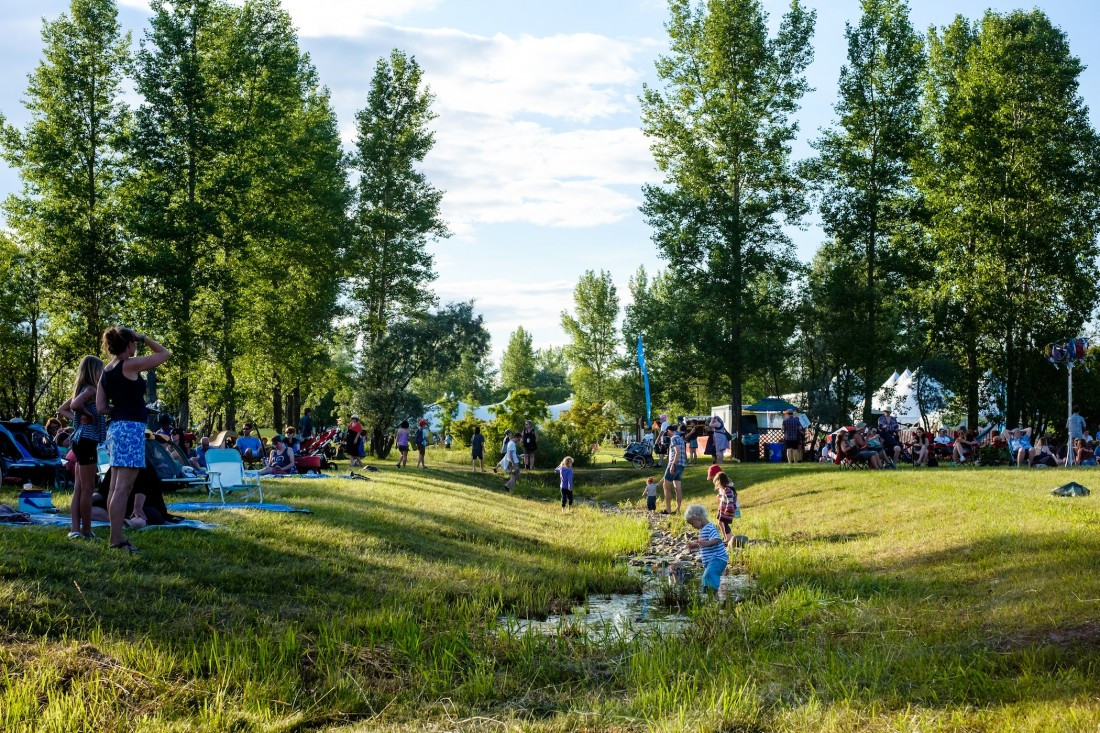
“I see this as pilgrimage, big time,” Janzen says. “I go to this restaurant every Saturday, and they shut down every year during Folk Fest. It’s the only week of the year that they shut down. Pilgrimage is certainly a part of Christianity and Judaism, but I see it more as a part of Islam, so it could be Manitoba’s Mecca.”
“People look forward to this, and they say you have to be there, and people will make sacrifices just so they can be there.”
And once you get there, there’s an overwhelming energy of presence. Mindfulness and meditation have gained enough popularity to be almost disconnected with their more religious foundations - like Buddhism – but there’s no denying the effect of some 80,000 people all deciding that they are in fact, here. Phones are put down, technology takes a back seat, and everyone just looks right at each other.
“From the Buddhist point of view, you stop clinging, so you stop holding onto all of that stuff that you worry about, like Facebook and Twitter,” Janzen says.
According to countless studies, being present is one of the biggest contributors to happiness. It may be what’s behind enlightening spiritual revelations, and might be what keeps Folkers returning to the site religiously year after year.
Finally, there’s the drugs. Music festivals and drugs go hand-in-hand, whether it’s MDMA at Electronic Daisy Carnival or salvia at Burning Man. But drugs tend to take a spiritual turn at Folk Fest as well, where they’re more likely not taken to get “effed up” as much as they’re taken to widen perception, open up to vulnerability and leave with a deeper sense of reality.
When asked how Shore feels after the festival is over she said, “Full. Very full of love and good food and energy and so many new friends and new numbers in my phone.”
“It feels profound,” camper Josh Rhule says. “You have a higher sense of understanding.”
But then again, maybe it’s just the food.

